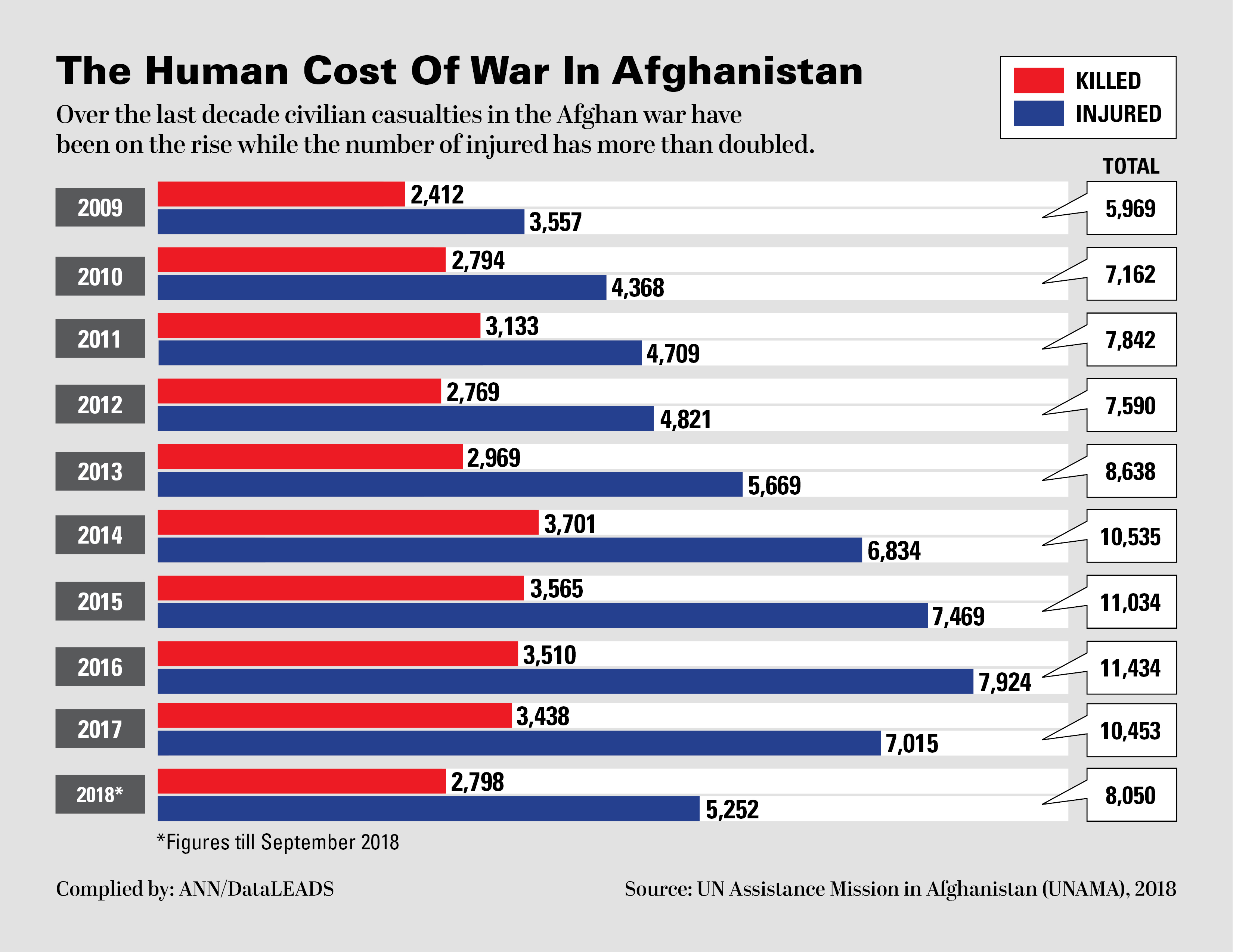The human cost of Afghan war

Credit to Author: cmiranda| Date: Sun, 10 Feb 2019 11:24:55 +0000
NEW DELHI — The civilians in Afghanistan continue to die in record numbers, as the U.S. and the Taliban are negotiating a peace deal to end the 17-year-old war.
The civilians in Afghanistan continue to die in record numbers, as the U.S. and the Taliban are negotiating a peace deal to end the 17-year-old war.
Since the United Nations (UN) began recording civilian casualties in Afghanistan in 2009, it has documented nearly 31,000 civilian deaths and as per the UN data the war has left 57,000 civilians injured. The militant attacks and suicide bombs are the leading causes of civilian deaths.
In the last year alone, the UN documented 8,050 civilian casualties (2,798 deaths and 5,252 injured).
There were 10,453 casualties in year 2017 and 11, 434 casualties in 2016. The UN has urged all side to take concrete steps toward a peaceful settlement highlighting “extreme levels of harm to civilians”.
Several reports published by research and advocacy groups show much higher figures of civilian causalities.
The U.S. invaded Afghanistan in 2001 and soon over 50,000 Nato troops joined the U.S. troops in the war against the Taliban.
The war has become the longest war in American history. More than 2,400 U.S. troops have died in the Afghan War since 2001 and tens and thousands of Afghan soldiers have also died in the conflict.
In 2014, Nato formally ended the combat mission. Since then, the Taliban have made substantial territorial gains across the country and today the Taliban control more territory than at any point since the removal of their regime 17 years ago.
Thousands of Nato-led troops remain in training and support roles with the U.S. having the largest contingent, with 14,000 troops still in Afghanistan.
About 8,000 soldiers from another 38 countries are also present.
In a major breakthrough, despite continuing violence on the ground in Afghanistan, the U.S. and the Taliban recently met in Qatar. Both the sides have reported agreed in principal on a framework that could eventually bring Afghanistan’s long-running war to an end.